Smarter Support for Safer Community Care
Deliver better, faster, and safer care outside hospital walls with Cellma – your AI-powered Community Care EPR software.
Our Commitment to Safety, Security, and Quality
Our ISO accreditations verify our compliance to the highest international standards.

Community care is at the forefront of the changing healthcare landscape with timely care and support delivered close to home, where recovery and independence thrive. Whether it is a district nurse visiting a patient in their home, a physiotherapist observing rehabilitation goals, or a mental health team providing crisis support, community services change lives for the better every single day.
But delivering high quality, timely care outside of ambulatory settings is difficult for many reasons including cuts to patient record continuity, mostly paper processes, no real-time data, and increased demand on these already stretched services.
Cellma, an advanced Community Care EPR, solves these problems by providing staff with the means, mobility, and the integration they need to allow them to deliver safe, and effective care.

Cellma enhances district nursing by digitising care records, supporting mobile documentation, and enabling coordinated care planning aligned with NHS community care standards. Nurses can record visits in real time using handheld devices, manage caseloads based on priority and geography, and ensure continuity through shared access to patient care plans. Cellma supports wound care monitoring, catheter management, and long-term condition reviews, reducing duplication and enhancing care quality.
Cellma produces reports on caseload distribution, missed visits, wound healing progress, and care plan compliance. It integrates with GP systems, NHS Spine for patient demographics, and community pharmacy systems for medication management. This enables seamless, secure data sharing and reduces administrative burden for frontline staff.

Cellma supports AHPs such as physiotherapists, occupational therapists, and dietitians by offering tailored care plans, outcome tracking tools (e.g., EQ-5D, Barthel Index), and scheduling features. It allows therapists to record interventions, set SMART goals, and collaborate in multidisciplinary team (MDT) reviews. Cellma aligns with NHS England's personalised care and rehabilitation frameworks to deliver measurable, patient-centred therapy.
It generates reports on therapy outcomes, wait times, patient satisfaction, and re-referral rates. Integration with imaging systems (PACS), referral sources (GPs, secondary care), and equipment providers ensures streamlined service delivery. Cellma’s outcome dashboards help trusts meet reporting requirements under the Community Services Data Set (CSDS).

Cellma provides a robust digital platform for Community Mental Health Teams, supporting clinical assessments, care planning, and safeguarding in line with NICE and NHS Mental Health Implementation Plan standards. It enables risk assessments, care coordination, CPA management, and real-time communication between psychiatrists, CPNs, and social workers. Mental health clusters, safety alerts, and patient engagement logs are captured consistently across services.
Reports include clustering data, safeguarding activity, response times, and treatment adherence. Cellma integrates with local authority systems, MHRA for incident reporting, and urgent care pathways including NHS 111 and crisis teams. These tools help CMHTs demonstrate compliance with CQC regulations and Mental Health Data Set submissions.

Cellma strengthens health visiting services by supporting the delivery of the Healthy Child Programme through structured workflows, child development templates, and automated safeguarding alerts. It enables practitioners to manage the Universal Health Visiting Pathway effectively, including key contacts at 6–8 weeks, 1 year, and 2–2½ years. Digital tools facilitate real-time documentation of developmental checks, feeding assessments, and parental concerns directly during home or clinic visits.
Cellma also allows secure linking of mother and baby records, providing a clear view of family context to support early identification of risk factors such as perinatal mental health, neglect, or domestic abuse. Cellma produces reports on due and overdue contacts, safeguarding activity, immunisation status, and breastfeeding initiation and continuation. Integration with Child Health Information Services (CHIS) and early years settings helps ensure accurate, up-to-date child health records.

Cellma provides an integrated approach to rehabilitation, enabling clinicians to create and track individualised care plans that align with NHS England’s personalised care model. Cellma supports both short-term and long-term rehab pathways by managing goal setting, therapy timetables, and patient-reported outcomes. MDT notes and progress reviews are shared across services to enhance continuity of care.
Cellma offers dashboards for functional outcomes, appointment adherence, discharge readiness, and waiting list trends. It connects with acute discharge systems, community equipment services, and social care providers, ensuring efficient care transitions. Reporting supports compliance with the Community Services Data Set and local ICB commissioning needs.
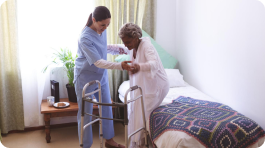
Cellma has the potential to advance palliative care services through enhanced record keeping around end of life planning, the ability to track symptoms, and communication with families. Cellma allows for the recording of advance care plans, DNACPRs and preferred place of care in accordance with the Gold Standards Framework. Palliative teams can connect with GPs, hospices, and carers using shared records via a secure platform, and alerts for symptom escalation, deterioration using shared notes for the person receiving care.
Reports encompass analysis of symptom burden, adherence to recommended care plans, patient preferences compared to place of death trends. We can integrate with GP systems, hospices, NHS Summary Care Record, and pharmacy services (for anticipatory medication) to ensure decisions made are timely and based upon the individual. This allows consistent quality of care to meet the national quality standards for end-of-life care.

Cellma supports emergency response teams by providing urgent triage, real-time management of referrals, and a clinical documentation tool. Cellma was designed to facilitate the appropriate assessment of patients in an urgent care scenario to avoid unnecessary admissions to hospitals by enabling clinicians to assess patient needs, take suitable actions and involve GPs and social care along the way. It includes triage assessment features, early warning signs (EWS) scoring and escalation alerts to enhance urgent community responses.
Reports include response times, admission avoidance, escalation rates, source of referral, etc. Interoperability with NHS 111, ambulance services and acute trusts facilitates timely, reliable transfer of care processes. These elements of Cellma meet NHS Community Two-Hour Urgent Response requirements (standards) and ICB reporting.

Cellma enhances district nursing by digitising care records, supporting mobile documentation, and enabling coordinated care planning aligned with NHS community care standards. Nurses can record visits in real time using handheld devices, manage caseloads based on priority and geography, and ensure continuity through shared access to patient care plans. Cellma supports wound care monitoring, catheter management, and long-term condition reviews, reducing duplication and enhancing care quality.
Cellma produces reports on caseload distribution, missed visits, wound healing progress, and care plan compliance. It integrates with GP systems, NHS Spine for patient demographics, and community pharmacy systems for medication management. This enables seamless, secure data sharing and reduces administrative burden for frontline staff.

Cellma supports AHPs such as physiotherapists, occupational therapists, and dietitians by offering tailored care plans, outcome tracking tools (e.g., EQ-5D, Barthel Index), and scheduling features. It allows therapists to record interventions, set SMART goals, and collaborate in multidisciplinary team (MDT) reviews. Cellma aligns with NHS England’s personalised care and rehabilitation frameworks to deliver measurable, patient-centred therapy.
It generates reports on therapy outcomes, wait times, patient satisfaction, and re-referral rates. Integration with imaging systems (PACS), referral sources (GPs, secondary care), and equipment providers ensures streamlined service delivery. Cellma’s outcome dashboards help trusts meet reporting requirements under the Community Services Data Set (CSDS).

Cellma provides a robust digital platform for Community Mental Health Teams, supporting clinical assessments, care planning, and safeguarding in line with NICE and NHS Mental Health Implementation Plan standards. It enables risk assessments, care coordination, CPA management, and real-time communication between psychiatrists, CPNs, and social workers. Mental health clusters, safety alerts, and patient engagement logs are captured consistently across services.
Reports include clustering data, safeguarding activity, response times, and treatment adherence. Cellma integrates with local authority systems, MHRA for incident reporting, and urgent care pathways including NHS 111 and crisis teams. These tools help CMHTs demonstrate compliance with CQC regulations and Mental Health Data Set submissions.

Cellma strengthens health visiting services by supporting the delivery of the Healthy Child Programme through structured workflows, child development templates, and automated safeguarding alerts. It enables practitioners to manage the Universal Health Visiting Pathway effectively, including key contacts at 6–8 weeks, 1 year, and 2–2½ years. Digital tools facilitate real-time documentation of developmental checks, feeding assessments, and parental concerns directly during home or clinic visits.
Cellma also allows secure linking of mother and baby records, providing a clear view of family context to support early identification of risk factors such as perinatal mental health, neglect, or domestic abuse. Cellma produces reports on due and overdue contacts, safeguarding activity, immunisation status, and breastfeeding initiation and continuation. Integration with Child Health Information Services (CHIS) and early years settings helps ensure accurate, up-to-date child health records.

Cellma provides an integrated approach to rehabilitation, enabling clinicians to create and track individualised care plans that align with NHS England’s personalised care model. Cellma supports both short-term and long-term rehab pathways by managing goal setting, therapy timetables, and patient-reported outcomes. MDT notes and progress reviews are shared across services to enhance continuity of care.
Cellma offers dashboards for functional outcomes, appointment adherence, discharge readiness, and waiting list trends. It connects with acute discharge systems, community equipment services, and social care providers, ensuring efficient care transitions. Reporting supports compliance with the Community Services Data Set and local ICB commissioning needs.
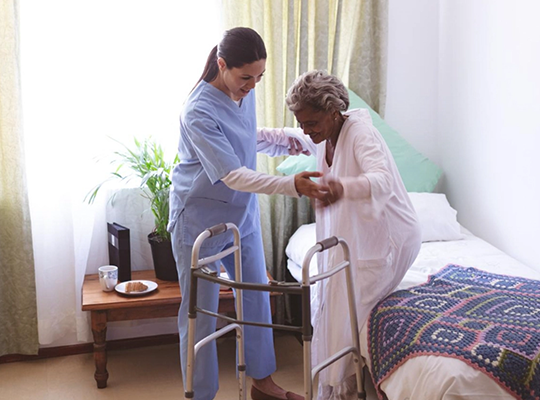
Cellma has the potential to advance palliative care services through enhanced record keeping around end of life planning, the ability to track symptoms, and communication with families. Cellma allows for the recording of advance care plans, DNACPRs and preferred place of care in accordance with the Gold Standards Framework. Palliative teams can connect with GPs, hospices, and carers using shared records via a secure platform, and alerts for symptom escalation, deterioration using shared notes for the person receiving care.
Reports encompass analysis of symptom burden, adherence to recommended care plans, patient preferences compared to place of death trends. We can integrate with GP systems, hospices, NHS Summary Care Record, and pharmacy services (for anticipatory medication) to ensure decisions made are timely and based upon the individual. This allows consistent quality of care to meet the national quality standards for end-of-life care.

Cellma supports emergency response teams by providing urgent triage, real-time management of referrals, and a clinical documentation tool. Cellma was designed to facilitate the appropriate assessment of patients in an urgent care scenario to avoid unnecessary admissions to hospitals by enabling clinicians to assess patient needs, take suitable actions and involve GPs and social care along the way. It includes triage assessment features, early warning signs (EWS) scoring and escalation alerts to enhance urgent community responses.
Reports include response times, admission avoidance, escalation rates, source of referral, etc. Interoperability with NHS 111, ambulance services and acute trusts facilitates timely, reliable transfer of care processes. These elements of Cellma meet NHS Community Two-Hour Urgent Response requirements (standards) and ICB reporting.

Medication management, wound care, chronic disease support
Cellma enhances district nursing by digitising care records, supporting mobile documentation, and enabling coordinated care planning aligned with NHS community care standards. Nurses can record visits in real time using handheld devices, manage caseloads based on priority and geography, and ensure continuity through shared access to patient care plans. Cellma supports wound care monitoring, catheter management, and long-term condition reviews, reducing duplication and enhancing care quality.
Cellma produces reports on caseload distribution, missed visits, wound healing progress, and care plan compliance. It integrates with GP systems, NHS Spine for patient demographics, and community pharmacy systems for medication management. This enables seamless, secure data sharing and reduces administrative burden for frontline staff.

Physiotherapy, occupational therapy, dietetics
Cellma supports AHPs such as physiotherapists, occupational therapists, and dietitians by offering tailored care plans, outcome tracking tools (e.g., EQ-5D, Barthel Index), and scheduling features. It allows therapists to record interventions, set SMART goals, and collaborate in multidisciplinary team (MDT) reviews. Cellma aligns with NHS England's personalised care and rehabilitation frameworks to deliver measurable, patient-centred therapy.
It generates reports on therapy outcomes, wait times, patient satisfaction, and re-referral rates. Integration with imaging systems (PACS), referral sources (GPs, secondary care), and equipment providers ensures streamlined service delivery. Cellma’s outcome dashboards help trusts meet reporting requirements under the Community Services Data Set (CSDS).

Crisis support, long-term psychiatric care
Cellma provides a robust digital platform for Community Mental Health Teams, supporting clinical assessments, care planning, and safeguarding in line with NICE and NHS Mental Health Implementation Plan standards. It enables risk assessments, care coordination, CPA management, and real-time communication between psychiatrists, CPNs, and social workers. Mental health clusters, safety alerts, and patient engagement logs are captured consistently across services.
Reports include clustering data, safeguarding activity, response times, and treatment adherence. Cellma integrates with local authority systems, MHRA for incident reporting, and urgent care pathways including NHS 111 and crisis teams. These tools help CMHTs demonstrate compliance with CQC regulations and Mental Health Data Set submissions.
Mobile Access
Custom Assessments and Care Plans
Automated Alerts
Scheduling and Caseload Visibility
Integrated Referral and Patient Portals
Integrated Referral and Patient Portals
Instant diagnostic imaging through DICOM & PACS
Intelligent Drug Interaction Alerts and Safeguarding Triggers
Power BI Dashboards Reporting Outcomes and KPIs
A unified record of clinical records for all home visits, teams, and services that allows continuity and safe transfer of care.
Manage caseloads, community based appointments, visits, and tracking of patients accurately.
Seamlessly connect services and teams, with visibility into referral statuses and transitions of care.
For community hospitals and intermediate care units, manage bed availability, transfers, movements and patients.
Enable patients and carers to access care plans, book appointments, and communicate with providers.
Manage medication safely with prescribing tools, drug alerts, and MAR charts integrated into community workflows.
Secure, real-time messaging and alerts to support MDT collaboration across services and geographies.
Instantly upload, store, and share care plans, discharge summaries, letters, and other critical documents.
Track service performance, audit activity, and understand population needs through NHS-aligned dashboards.


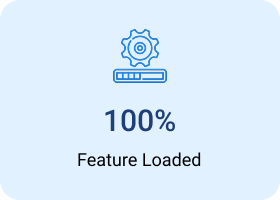
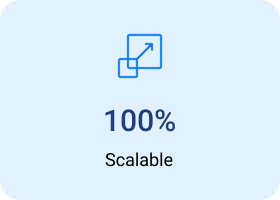
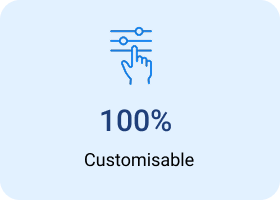
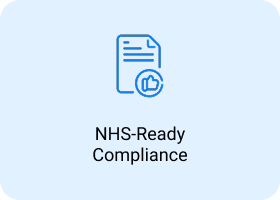
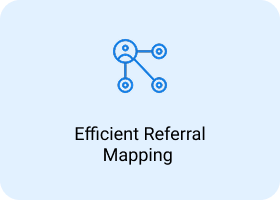
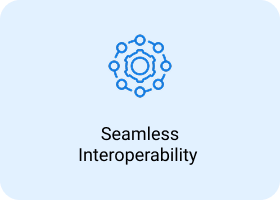

With mobile access to patient records, real-time documentation, and diagnostic integrations, Cellma helps teams deliver care where patients are - whether that’s in their home, a care home, or another community setting.
Yes. Cellma enables joint care plans, secure communication between teams, and shared access to documents and clinical updates, supporting coordinated care across services.
Very. Cellma meets the highest standards including GDPR, Cyber Essentials Plus, ISO 27001 hosting, and CIS2 access. NHS datasets and integration standards are fully supported.
Absolutely. Cellma integrates with systems like GP Connect, SCI Gateway, ECS, and more, enabling a unified, NHS-compatible workflow in community care.